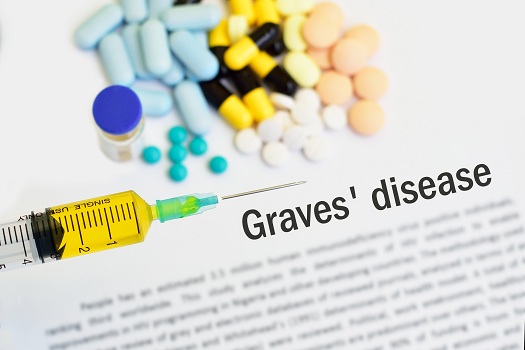Although the thyroid is a relatively small gland located in the front of the throat, it produces important hormones that regulate metabolism and control body temperature. If something causes the thyroid to produce too many hormones, which is a condition called hyperthyroidism, then a person can lose weight, sweat excessively, feel anxious, have a fast heart rate, and experience tremors. When people have hypothyroidism, which happens when not enough hormones are produced, they can gain weight, feel cold, experience hair loss, feel sluggish, and have high cholesterol. The following are a few of the most common thyroid conditions among seniors.
Hashimoto’s Disease
This is the most common reason elderly people develop hypothyroidism, and it occurs most often in women over the age of 60. It’s an autoimmune condition that causes the immune system to mistakenly attack the thyroid gland. Common symptoms include an enlarged thyroid, fatigue, weight gain, and a slowed heart rate. Hashimoto’s disease can often be treated with immunosuppressant drugs and synthetic hormone supplements.
If your senior loved one needs help managing an illness or assistance with daily tasks, make sure you choose a top-rated provider of elderly home care. Barrie Home Care Assistance is here to help your loved one live a happier and healthier life in the golden years. From the mentally stimulating activities in our Cognitive Therapeutics Method to our friendly Care Managers who are available to answer your questions 24 hours a day, we offer a wide array of high-quality at-home care services.
Graves’ Disease
Graves’ disease, the leading cause of hyperthyroidism, is the second most common thyroid disease among the elderly. This disease occurs when the thyroid responds to abnormal antibodies and starts to produce excessive amounts of hormones. In addition to causing the usual symptoms of hyperthyroidism, including high blood pressure, excessive sweating, and abnormal heart rate, Graves’ disease is also associated with puffy eyes. It can sometimes be treated with medication, but treatment occasionally requires surgery.
Goiters
Goiters are extremely common in seniors with iodine deficiencies. This form of thyroid disease can include symptoms of either hyperthyroidism or hypothyroidism, and it’s characterized by an excessively enlarged thyroid. It can typically be treated with iodine supplements.
There are a variety of age-related health conditions that can make it more challenging for seniors to live independently. However, many of the challenges they face can be easier to address if their families opt for professional elder care. You can rely on expertly trained caregivers to keep your loved one safe and comfortable while aging in place.
Plummer Syndrome
This disease, also known as toxic multinodular goiter, is a type of hyperthyroidism. Plummer syndrome occurs when a senior has a preexisting goiter that develops a hyperfunctioning nodule that produces excess amounts of thyroid hormone. This causes severe symptoms such as fatigue, unexplained weight loss, fidgeting, and excessive bowel movements, but the eyes aren’t affected. Most people with Plummer syndrome are postmenopausal women over the age of 60. It’s also common in people over the age of 40 with iodine deficiencies, and in those cases, it can usually be treated with iodine supplements.
Thyroid Cancer
Seniors may develop malignancies in their thyroid glands. Papillary carcinoma is the most common type of thyroid cancer. Cancer can keep the thyroid from functioning properly and usually results in hypothyroidism. Treatment options for cancer in the thyroid typically include chemotherapy, radiation, and surgery. Fortunately, the survival rate for seniors with thyroid cancer who get it treated with surgery is almost 90 percent.
If your loved one has been diagnosed with thyroid disease, he or she can continue to live at home with help from a professional caregiver. If you’re the primary caregiver for a senior loved one in Barrie, respite care is available when you need time away from your important caregiving duties. At Home Care Assistance, our respite caregivers are available 24 hours a day, 7 days a week to help your loved one manage everyday tasks in the comfort of home while you have the chance to take a much-needed break. If your loved one needs professional care, Home Care Assistance is here to help. Call one of our dedicated Care Managers today at 647-970-3803 to learn about the high quality of our in-home care services.
